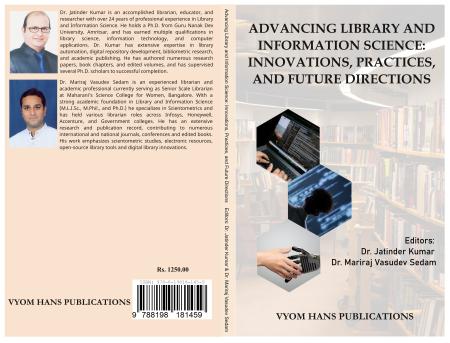ASSESSMENT METHODS FOR INFORMATION LITERACY PROGRAMS OF LIBRARIES
Synopsis
Libraries are pivotal in fostering information literacy (IL), equipping users with skills to locate, evaluate and ethically use information in academic, professional and personal contexts. However, the effectiveness of IL programs hinges on robust assessment strategies that validate their impact, guide improvements and justify resource allocation. Picture a first-year college student, Maria, hunched over her laptop at 2 a.m., overwhelmed by a research paper. She’s drowning in a sea of search results, unsure how to distinguish credible sources from click bait. Now imagine her walking into her university library the next day, where a librarian guides her through Boolean operators and database filters. By the end of a 45-minute workshop, Maria’s anxiety turns to confidence. This is the transformative power of information literacy (IL) programs. But how do libraries prove that such moments of empowerment translate to lasting impact? The answer lies in thoughtful assessment a process that goes beyond ticking boxes to uncover stories of growth, gaps and community needs.
Keywords: Information Literacy Assessment, Rubrics for Information Literacy, Performance-based Assessment, Critical Thinking Skills, Quantitative Assessment, Qualitative Assessment, Self-Assessment Tools





